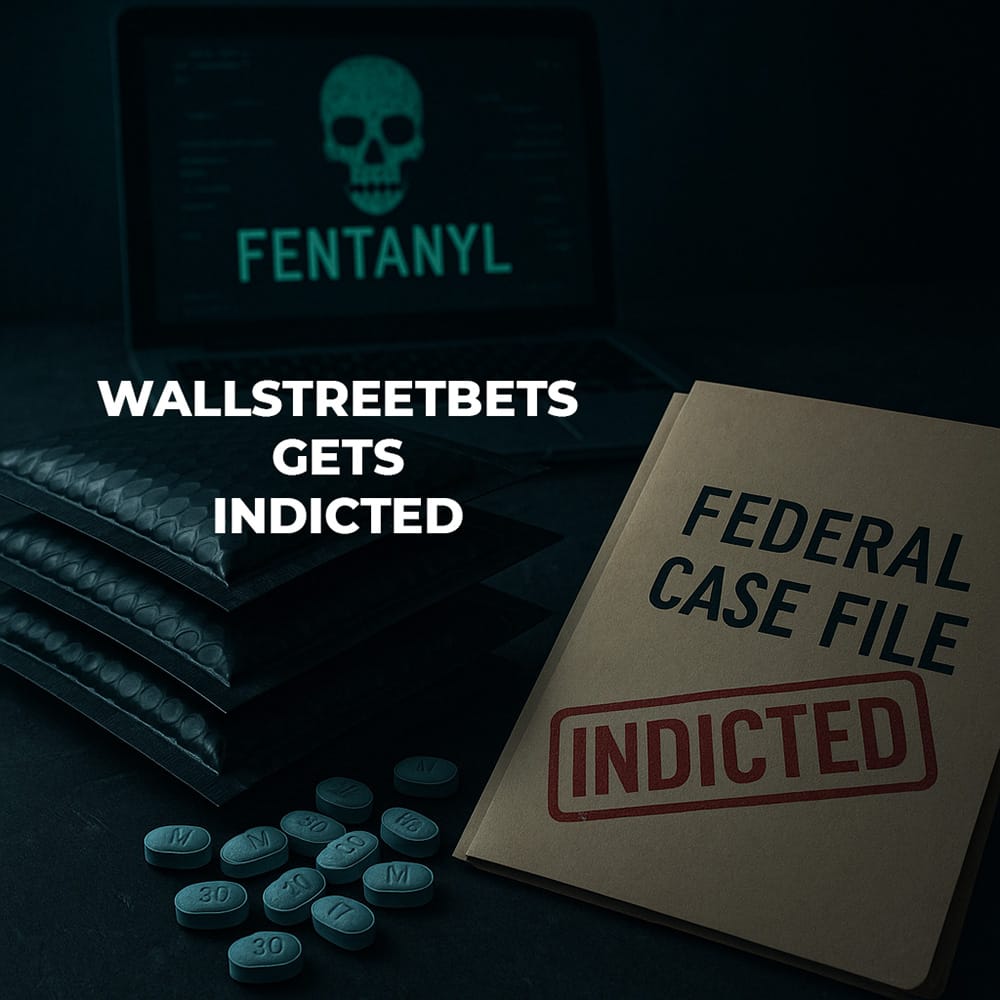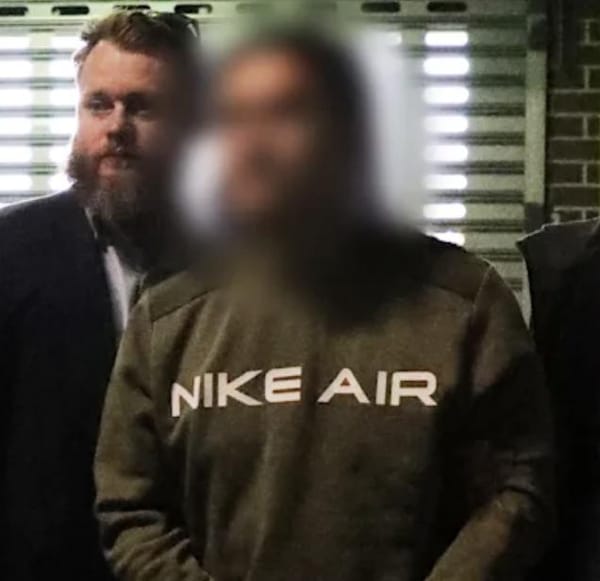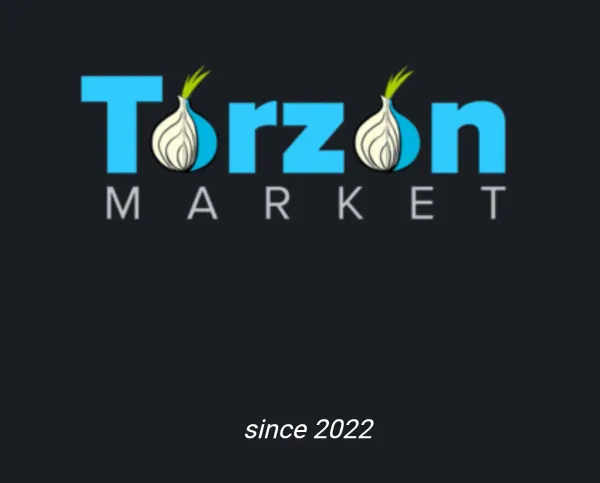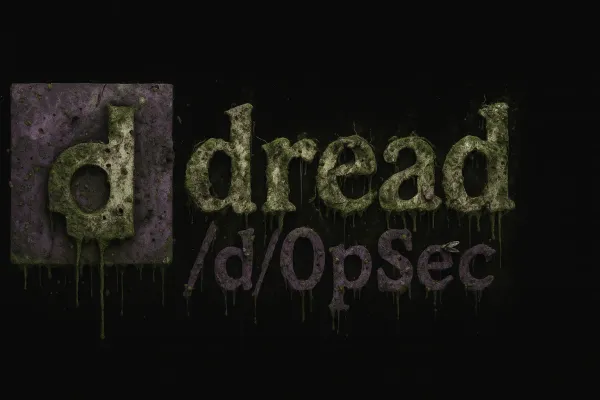WallStreetBets gets Indicted
Seven Georgia residents now face federal conspiracy charges after allegedly operating a high-volume fentanyl and methamphetamine distribution network through dark web markets.

Seven Georgia residents now face federal conspiracy charges after allegedly operating a high-volume fentanyl and methamphetamine distribution network through dark web markets. It’s a federal grand jury indictment that ties together cryptographic commerce, massive narcotics shipments, and the ongoing digital arms race between online dealers and law enforcement.
Digital Trafficking as Standard Operating Procedure
The indictment centers on a crew who systematically darknet platforms specifically, White House Market and Darkode Market to move thousands of parcels loaded with counterfeit oxycodone, Adderall, Percocet, crystal meth, and fentanyl-based powder across the United States.
Federal authorities didn’t stumble into this case. The grand jury in Athens, Georgia returned the indictment on May 14, 2025, unsealed it five days later, and coordinated a sweep of the metro Atlanta area targeting key players.
The Accused
The defendantsall from Georgiaare:
| Name | Age | Residence |
|---|---|---|
| Steven Ehizojie Oboite | 32 | Conyers, GA |
| Eric Xavier Bechet | 31 | Dunwoody, GA |
| Jabari Ayinde Cooper | 29 | Atlanta, GA |
| Rashad Cortese Kinloch | 28 | Dunwoody, GA |
| Myron Ned Stodghill | 31 | Fairburn, GA |
| Reginald Tyrone Douglas | 31 | Dunwoody, GA |
| Joshua Jamal Charles | 25 | Atlanta, GA |
All face a single count of conspiracy to distribute fentanyl and meth, a charge carrying up to life in federal prison. Formal arraignments took place between May 22 and June 18, 2025, in front of Judge Charles Weigle. With the exception of Cooper and Kinloch who were granted bond the defendants are held pending trial. Presumption of innocence is a procedural reality, but the government’s posture signals a case built on both digital and physical evidence.
How the Operation Worked
At the core of the conspiracy was a vendor profile known as “WallStreetBets,” controlled by Oboite and Bechet. The account racked up 2,777 sales and held a 95% rating on Darkodeevidence of industrial-scale distribution and a well-managed customer service operation, by darknet standards.
Parcels shipped under this operation followed a predictable, methodical pattern:
- Always padded or lined with bubble wrap to avoid detection and damage.
- Prepaid labels generated via a third-party postage service accepting cryptocurrency, severing direct paper trails.
- Sender information spoofed using non-existent businesses and randomized Georgia addresses.
- Packages sometimes included candy, likely an additional layer of concealment.
The drugs were never limited to one class. Fentanyl, crystal meth, counterfeit prescription pills, and various blends all shipped as if they were another eBay order.
Law Enforcement Response
On May 19, 2025, agents executed search warrants at several metro Atlanta locations, seizing:
| Item | Quantity |
|---|---|
| Fentanyl-based powder | ~5 kg |
| Cocaine | ~1 kg |
| Marijuana | Several pounds |
| Pills | ~200 |
| Firearms | 6 |
| Cold cryptocurrency wallets | 2 |
| Vehicles | Jeep Wrangler, Tesla Model S |
The cache speaks for itselfnarcotics measured by the kilogram, loaded pistols, cold wallets for laundering profits, and enough physical evidence to link every defendant to the supply chain. The response wasn’t limited to one agency. The FBI, USPIS, IRS CI, DEA, GBI, and Athens-Clarke County Police formed a task force under the J-CODE (Joint Criminal Opioid and Darknet Enforcement) umbrella, targeting digital drug sales at scale.
Federal Prosecution and Public Warnings
Assistant U.S. Attorney Daniel Peach leads the prosecution, with federal messaging focusing heavily on public health risksespecially fentanyl, which continues to drive record overdose deaths. The government’s outreach encourages anyone with information on related overdoses to contact the FBI Atlanta field office. Public safety messaging is designed to leverage community fear of fentanyl, but the real impact comes from the scale of narcotics moving through these digital marketsevidence that U.S. drug enforcement is struggling to keep pace with encrypted, decentralized distribution.
Underlying Realities and Legal Tightrope
Federal prosecutors and the DOJ want to present this as a victory against digital drug trafficking, but it’s a temporary interruption in a market that evolves faster than law enforcement doctrine. The dark web isn’t going away. Cryptocurrency isn’t losing relevance.
While the indictment checks the box for “presumption of innocence,” don’t kid yourself: federal drug conspiracy charges rarely come down unless agents are confident in their data, surveillance, and wiretaps. Still, the legal process plays out in court, and every defendant retains their rights until a verdict is delivered.
Final Word
This indictment isn’t unique, and it doesn’t signal the end of darknet distribution. If anything, it demonstrates how little ground the federal government has gained in the war against digitally enabled narcotics trafficking. As of July 2025, the only thing that’s changed is the headline and the names. The supply chain, the methods, and the incentive structure remain untouched. The real story is what comes next and how much smarter the next round of vendors will be.




